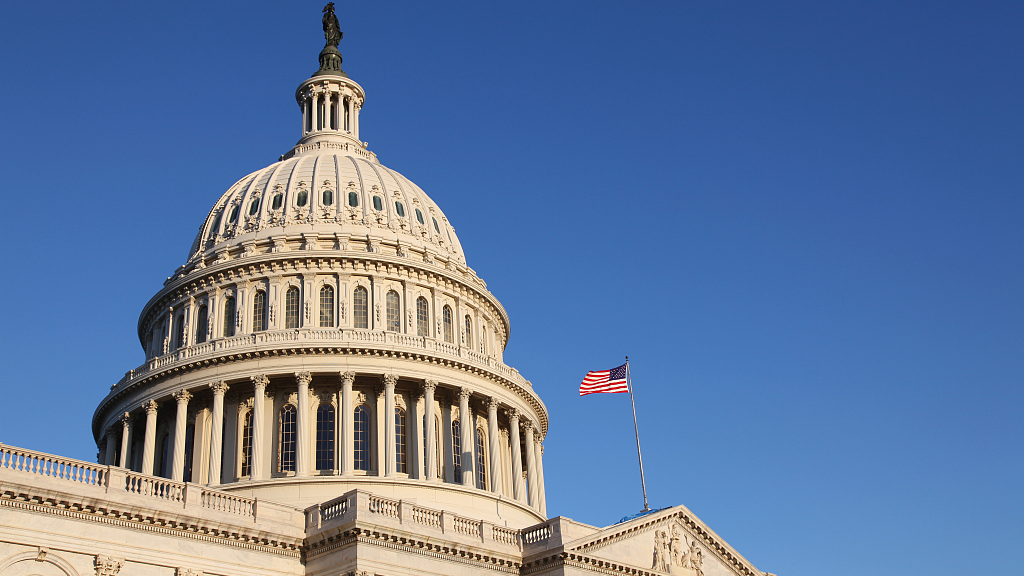
Editor's Note: Ken Moak, who taught economic theory, public policy and globalization at the university level for 33 years, co-authored a book titled "China's Economic Rise and Its Global Impact" in 2015. The article reflects the author's opinion, and not necessarily the views of CGTN.
There is not a day that goes by that the West, the U.S. in particular, does not accuse China of spreading disinformation or lying to the world on all fields, including the sowing of disinformation on the COVID-19 pandemic, the national security law "crushing" Hong Kong freedom and "debt-trap" diplomacy, just to name a few in a long list. However, none of these allegations has any solid proof or remotely resembles anything on the ground.
The New York Times (NYT) parroted if not "added spice" to the U.S. government's line that the national security law (NSL), for example, would end Hong Kong's freedom or the Chinese central government reneged on the "One Country, Two Systems" architecture guaranteeing the region's status quo with the exception of foreign affairs and national defense.
The NYT report is misinformation bordering "fake news" because the central government not only lived up to the "One Country, Two Systems" policy, but gave Hong Kong more freedom than under British colonial rule. The British colonial government would not have tolerated protests, let alone violent ones as attested by its Emergency Regulations Ordinance in 1922 and 1967.
Moreover, the "pro-democracy" activists proved that democracy is "alive and well" in the region because the protests forced the government to back down on some policy proposals, including the fugitive law in 2019.
It could even be argued that the Hong Kong government is more tolerant of protests than the U.S. and the UK. It did not call out the army to shoot at the protesters for using violence against rioters who committed treason and damaged properties. U.S. President Donald Trump, on the other hand, ordered the military into cities to suppress anti-racist protests just because a few resorted to violent acts.
The West also exaggerated the Hong Kong businesses' and people's opposition to the NSL, saying that "many feared for their lives and freedoms." But, in reality, the majority of Hong Kongers actually welcomed the law. Nearly two-thirds of businesses and banks located in Hong Kong and 2.9 million residents signed petitions to support it. Another 1.7 million signed and sent a petition to the U.S. Consulate demanding the U.S. stop meddling in Hong Kong affairs.

Residents attend a street campaign in support of national security legislation for the HKSAR in Hong Kong, south China, May 23, 2020. /Xinhua
Residents attend a street campaign in support of national security legislation for the HKSAR in Hong Kong, south China, May 23, 2020. /Xinhua
Accusing China of "misinforming" the world about and "mishandling" the COVID-19 pandemic, for example, was not only questionable, but contradictory as well. Trump initially praised China for informing the world and effectively handling the virus in January. But after a two-month period of complacency and mishandling of the virus, which has so far infected over 3 million Americans and killed nearly 135,000, Trump evaded responsibility for his inept dealing with the virus, shifting the blame and calling COVID-19 the "Chinese virus" or "Kung Flu."
Indeed, the West or the U.S. never did explain how China "misinformed" the world about COVID-19. China warned the world that the virus could spread rapidly on January 3, only days after the first cases emerged in Wuhan in late December. China is quick in sharing information on the virus with the World Health Organization and other countries, including the U.S. and the EU.
With regard to handling the virus, most countries had in fact praised China. To fight against the virus, the Wuhan government immediately locked down the city. China quickly built two military-style field hospitals and sent thousands of medical workers to the city. As a result of these efforts, China's daily new COVID-19 cases were equally miniscule in comparison to those of the West.
It seems to be the pattern that shapes U.S. foreign policy: First make the accusation, find "evidence" to support it, and have the media promote it. To that end, the world should not be surprised if the U.S. found "credible proof" that COVID-19 was "manufactured" in and deliberately spread to the world by China. These accusations take U.S. hypocrisy to "new heights."
(If you want to contribute and have specific expertise, please contact us at opinions@cgtn.com.)